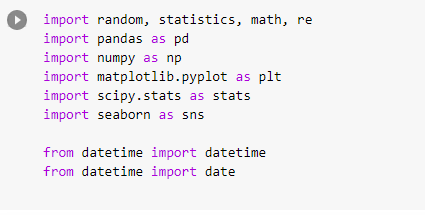1. Eliminate distractions.
Make a practice to block time in your schedule to do a specific task or activity.
Shutting off both internal and external disturbances can help you to concentrate.
2.Reduce multitasking.
Attempting to perform multiple activities at the same time makes us feel productive.
It’s also a recipe for lower focus, poor concentration, and lower productivity. And lower productivity can lead to burnout.
3. Practice mindfulness and meditation.
Meditation is the #1 exercise to increase your brainpower.
Stress clouds your thinking, so relieve stress with meditation. It’s easy!
4. Get more sleep.
Many factors affect your sleep.
A good laugh and a long sleep are the best cures in the doctor’s book.
• Irish Proverb
5. Choose to focus on the moment.
Do not overthink the past.
Do not overthink the future.
Train your mind to be present at the moment.
6. Take a short break
It’s okay to give yourself a break every once in a while.
Do something nice for yourself, prioritise sleep, allow time for creative activities, clean your room/get organized.
7. Connect with nature
The best music to listen to while walking in nature is silence.
Research has found that even having plants in office spaces can help increase concentration and productivity, as well as workplace satisfaction and better air quality.
8. Exercise
It is one of the most effective yet simple habits that can turn your life around.
Exercise doesn’t mean you need not go to the gym and deadlift 250 pounds; you just have to find what is right for you (like jogging, swimming, cycling, or any other thing) and do it.
9. Listen to music.
Music has been shown to have therapeutic effects on our brains. Light music may help you to concentrate better, but some music may distract you
10. Eat well.
Choose foods that moderate blood sugar, maintain energy, and fuel the brain. Fruits, vegetables, and high-fiber foods can keep your blood sugar levels even.
Your brain needs lots of good fat to function properly.
11. Set a daily priority.
Write down what you want to accomplish each day, ideally the night before, and identify a single priority that you commit to accomplishing.This will help focus your brain on what matters,tackling the big jobs first and leaving the small stuff till later
12. Create space for work.
Create a calm, dedicated space for work, if possible.
Clear clutter out of sight, make it as ergonomic and comfortable as possible, and try to keep your space neat and ventilated.
13. Use a timer.
Train your brain to hyper-focus on a task by using a timer or phone alarm.
Set yourself up with a timer for 60 mins to work solely on only one task. Remember, goals are dreams with deadlines.
14. Switch tasks.
While we may want to concentrate on a particular task, sometimes we get stuck and our brain needs something fresh to focus on. Switching tasks can help you stay alert and productive for a longer period.
15. Train your brain
Everyone knows books are the source of knowledge.
Always feed your brain. You can start by reading the 100 most important ideas of the 10 fundamental fields of knowledge :
https://t.co/761k3ChjLM
Thanks for reading. If you find this thread valuable follow me (@peace_mi_1 ) for more content like this. And retweet the first tweet to share with others:
https://t.co/AjPox2g2zL
